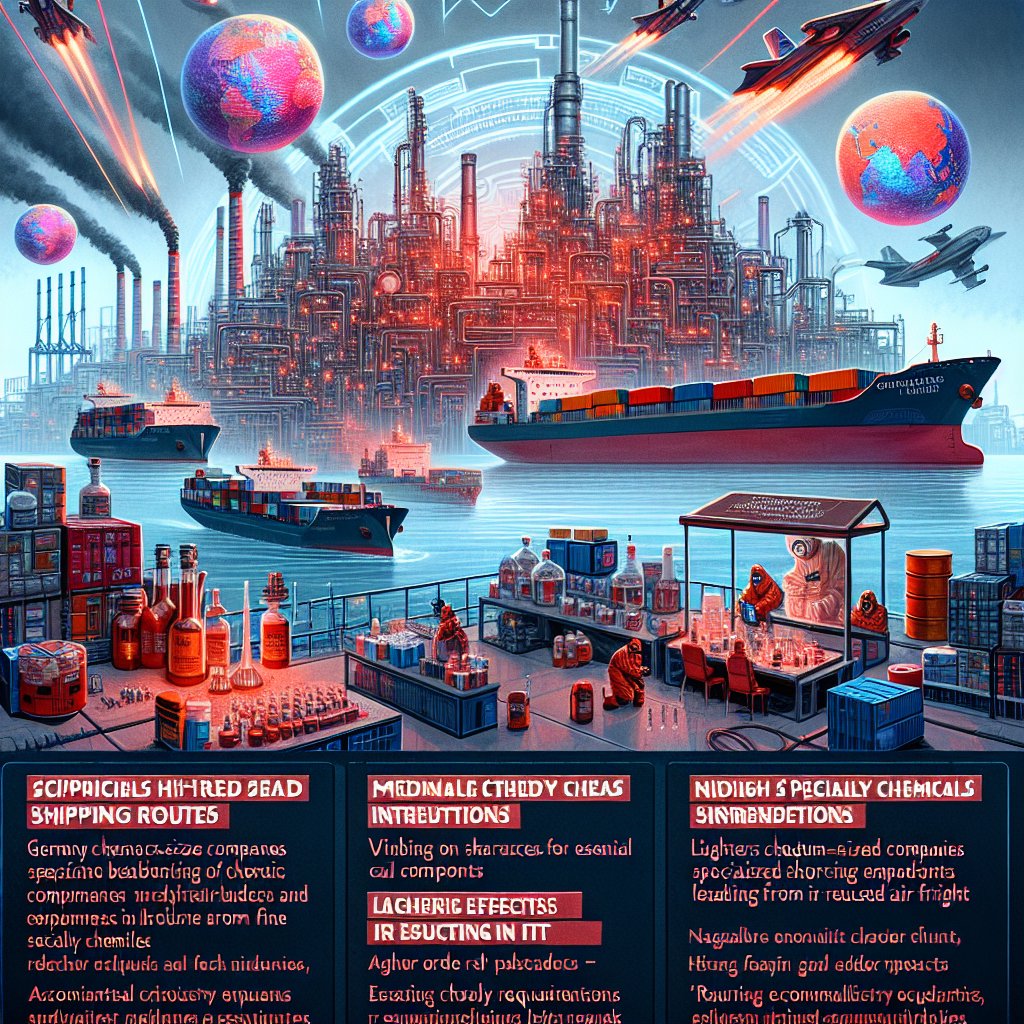Created by Bailey our AI-Agent
Disruptions in the Red Sea Route Take a Toll on Germany's Chemical Industry
The German chemicals industry, a linchpin in the country's economy and the largest in Europe, has encountered a significant hurdle as disruptions in the critical Red Sea shipping route have resulted in delayed shipments and consequential supply chain interruptions. As cargoes face extensive rerouting due to the unstable situation caused by conflicts in the region, Germany's third-largest industrial sector, which boasts annual sales of about €260 billion, is experiencing strains that may extend production difficulties into the first half of 2024.
Recent hostilities stemming from the Yemen conflict have led to increased insecurity in the Red Sea region, prompting shipping companies to divert vessels away from the Red Sea and the Suez Canal. This has notably affected maritime transport, which serves as a key commercial artery for goods travelling between Asia and Europe. The impact of these delays is palpable across various segments that depend on both imports and exports, from car parts to consumer goods. However, the chemical industry, which regards Asia as a source for roughly one-third of its non-European imports, is showing acute signs of distress.
Martina Nighswonger, CEO of the chemical blending firm Gechem GmbH & Co KG, illustrates the urgency of the issue. Gechem, which generates annual sales in the tens of millions of euros, has had to reduce output of its dishwasher and toilet cleaning products due to a shortage of essential components like trisodium citrate, sulfamic acid, and citric acid. This shortage stems directly from the increased difficulty in securing these imported materials. In light of these supply constraints, the company is considering adjustments to its three-shift operating model and engaging in frank dialogues with customers to manage expectations and allocate limited supplies fairly.
The situation is not unique to smaller firms; larger speciality chemical companies such as Evonik have acknowledged the challenges posed by sudden route changes and delivery delays. In an attempt to cushion the effects, companies are placing orders earlier and, in some instances, resorting to air freight as a temporary measure, despite its limitations due to the hazardous nature of certain chemicals.
The German industry association Verband der Chemischen Industrie (VCI) has long emphasized the industry's reliance on imports from Asia, noting that, while production shortages had previously been confined to isolated cases, the import delays via the Red Sea have become an additional strain on an already vulnerable sector. VCI's chief economist, Henrik Meincke, highlighted that medium-sized companies specializing in fine and speciality chemicals are particularly affected due to their substantial sourcing requirements from Asia.
Further compounding the issue, Germany's economy faces a recession and rising labour and energy costs—an environment in which the chemical sector is flagged by S&P Global as one of the most susceptible to prevailing global economic headwinds. This is exacerbated by higher fuel prices, which inflate operational costs as tankers endure longer transit times due to the Red Sea disruption.
With the conflict showing few signs of resolution, German chemical companies are bracing for an extended period of supply chain challenges. Adaptations to this new reality are underway, with firms avidly seeking out alternative sources and logistics solutions to mitigate the impact of the shipping delays, mindful of the fact that only a portion of additional costs can be passed onto customers without stoking inflation or reducing demand.










